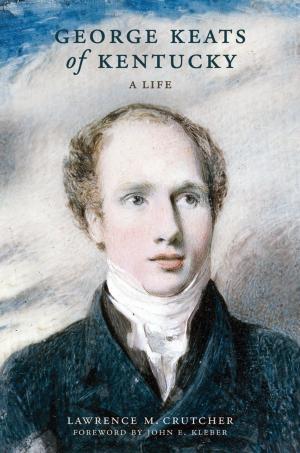My Brother Slaves
Friendship, Masculinity, and Resistance in the Antebellum South
Nonfiction, Social & Cultural Studies, Social Science, Discrimination & Race Relations, Cultural Studies, African-American Studies, History, Americas, United States, 19th Century| Author: | Sergio A. Lussana | ISBN: | 9780813166957 |
| Publisher: | The University Press of Kentucky | Publication: | April 18, 2016 |
| Imprint: | The University Press of Kentucky | Language: | English |
| Author: | Sergio A. Lussana |
| ISBN: | 9780813166957 |
| Publisher: | The University Press of Kentucky |
| Publication: | April 18, 2016 |
| Imprint: | The University Press of Kentucky |
| Language: | English |
Trapped in a world of brutal physical punishment and unremitting, back-breaking labor, Frederick Douglass mused that it was the friendships he shared with other enslaved men that carried him through his darkest days.
In this pioneering study, Sergio A. Lussana offers the first in-depth investigation of the social dynamics between enslaved men and examines how individuals living under the conditions of bondage negotiated masculine identities. He demonstrates that African American men worked to create their own culture through a range of recreational pursuits similar to those enjoyed by their white counterparts, such as drinking, gambling, fighting, and hunting. Underscoring the enslaved men's relationships, however, were the sex-segregated work gangs on the plantations, which further reinforced their social bonds.
Lussana also addresses male resistance to slavery by shifting attention from the visible, organized world of slave rebellion to the private realms of enslaved men's lives. He reveals how these men developed an oppositional community in defiance of the regulations of the slaveholder and shows that their efforts were intrinsically linked to forms of resistance on a larger scale. The trust inherent in these private relationships was essential in driving conversations about revolution.
My Brother Slaves fills a vital gap in our contemporary understanding of southern history and of the effects that the South's peculiar institution had on social structures and gender expression. Employing detailed research that draws on autobiographies of and interviews with former slaves, Lussana's work artfully testifies to the importance of social relationships between enslaved men and the degree to which these fraternal bonds encouraged them to resist.
Trapped in a world of brutal physical punishment and unremitting, back-breaking labor, Frederick Douglass mused that it was the friendships he shared with other enslaved men that carried him through his darkest days.
In this pioneering study, Sergio A. Lussana offers the first in-depth investigation of the social dynamics between enslaved men and examines how individuals living under the conditions of bondage negotiated masculine identities. He demonstrates that African American men worked to create their own culture through a range of recreational pursuits similar to those enjoyed by their white counterparts, such as drinking, gambling, fighting, and hunting. Underscoring the enslaved men's relationships, however, were the sex-segregated work gangs on the plantations, which further reinforced their social bonds.
Lussana also addresses male resistance to slavery by shifting attention from the visible, organized world of slave rebellion to the private realms of enslaved men's lives. He reveals how these men developed an oppositional community in defiance of the regulations of the slaveholder and shows that their efforts were intrinsically linked to forms of resistance on a larger scale. The trust inherent in these private relationships was essential in driving conversations about revolution.
My Brother Slaves fills a vital gap in our contemporary understanding of southern history and of the effects that the South's peculiar institution had on social structures and gender expression. Employing detailed research that draws on autobiographies of and interviews with former slaves, Lussana's work artfully testifies to the importance of social relationships between enslaved men and the degree to which these fraternal bonds encouraged them to resist.















